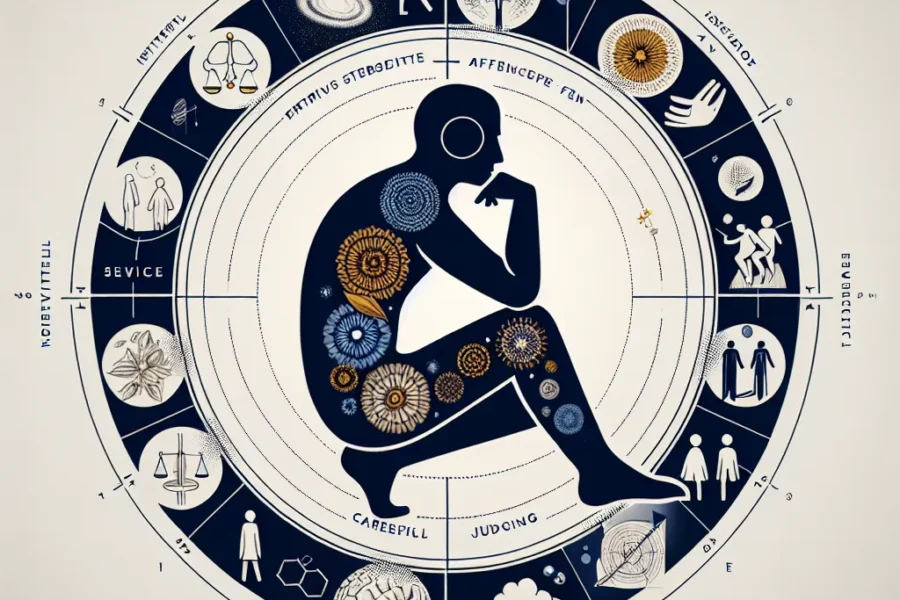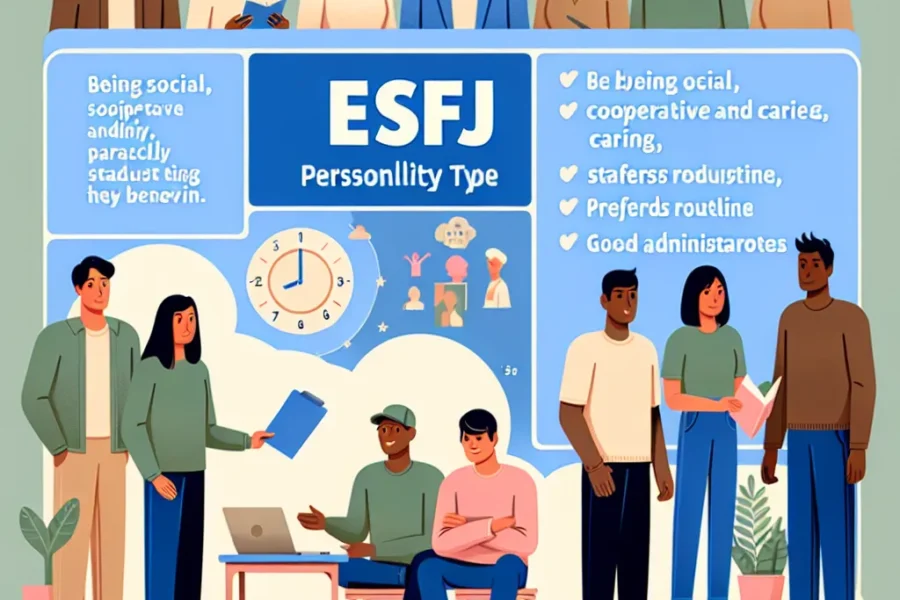Understanding ESTJ Personality Types
The ESTJ personality type, one of the 16 Myers-Briggs personality types, is often referred to as the “Executive” or “Supervisor.” This type is characterized by a strong sense of order and tradition, a commitment to laws and rules, and a practical approach to life. ESTJs are known for their clear communication, organizational skills, and leadership qualities. In this article, we’ll explore the unique traits of the ESTJ personality type, their strengths and weaknesses, their relationships, and career paths.
Characteristic Traits of ESTJs
ESTJs are extroverted individuals who thrive in social situations and excel at communicating with others. They are often assertive and outspoken, offering clear instructions and expectations. ESTJs place a high value on efficiency and productivity, which can be seen in their structured approach to tasks and their exceptional organizational skills.
They possess a strong sense of duty and responsibility, often taking the lead in community activities and organizations. As natural leaders, they exude confidence and are highly effective at managing teams and projects.
ESTJs tend to be traditionalists, valuing established norms and institutions. They are often conservative in their beliefs and prefer to maintain the status quo. This is apparent in their respect for hierarchy and authority, as well as their preference for organized systems and structures.
The Practical Approach of ESTJs
One of the key attributes of ESTJs is their practicality. They are grounded in reality and are known to be realistic and logical in their decision-making process. Their choices are typically based on concrete evidence and facts rather than speculation or emotions.
This practical nature also makes them excellent problem-solvers. ESTJs are adept at identifying issues and finding effective solutions in a timely manner. They are often consulted in times of crisis because of their ability to remain calm and take decisive actions.
The Strengths of ESTJs
The strengths of the ESTJ personality type are numerous. One of their greatest strengths is their leadership ability. ESTJs are capable leaders who can inspire others to follow them and work together towards a common goal. Their ability to see the bigger picture helps them in planning and organizing tasks and initiatives.
Another strength is the dedication they show to their work and communities. ESTJs often go above and beyond to fulfill their responsibilities and are very reliable and trustworthy. Their commitment to structure and order contributes to their success in various roles, particularly those that require precision and attention to detail.
ESTJs also display great energy and drive. They are not afraid of hard work and are often the first to take on a challenge. This can-do attitude makes them a valuable asset to any team or organization.
ESTJ Weaknesses
Despite their numerous strengths, ESTJs possess certain weaknesses. Because of their reliance on facts and logic, they can sometimes struggle to understand and relate to the emotional side of people. They may be perceived as too critical or insensitive, especially in situations that require empathy and support.
Their traditional outlook might also lead to resistance to change. ESTJs can be stubborn and may be reluctant to consider new or innovative ideas, preferring tried and true methods over experimental approaches.
ESTJs can also be uncompromising in their views and expectations, which can result in conflict with others who are less traditional or more flexible in their thinking.
Relationships and ESTJ Personality Types
In relationships, whether personal or professional, ESTJs value honesty and commitment. They are direct communicators who appreciate when others are straightforward with them. They can provide stability and guidance in relationships, often assuming the role of a provider or protector.
However, their need for structure can clash with more spontaneous or flexible personalities. They may need to develop patience and understanding to navigate relationships with those who have differing approaches to life.
While they make faithful and loyal partners, ESTJs might need to put in extra effort to show affection and consider their partner’s emotional needs, as this might not come naturally to them.
ESTJ Career Paths
ESTJs often excel in positions of authority where they can put their leadership skills to good use. Their ability to organize and their attention to detail makes them excellent candidates for roles in management, administration, law enforcement, and military careers.
They thrive in environments that have clear rules and hierarchies, where their respect for tradition and order can be an asset. Careers that involve providing services, such as healthcare and public services, are also well-suited to ESTJs because of their desire to fulfill their duties and help others.
They are not typically drawn to careers that are unpredictable or that require abstract thinking, preferring concrete and tangible results in their professional endeavors.
ESTJ Personal Growth
ESTJs can benefit significantly from personal growth and development, especially in learning to be more adaptable and open-minded. They can work on developing empathy and flexibility, which can enhance their relationships and broaden their perspectives.
Regarding emotional intelligence, ESTJs can improve by acknowledging their own emotions and those of others, embracing a more compassionate approach when necessary.
Conclusion
ESTJs are the backbone of organizations and communities, bringing structure and order to the world around them. Their strengths in leadership, reliability, and practicality make them indispensable in various aspects of life. However, their weaknesses, such as difficulty with change and emotional understanding, offer opportunities for growth and personal development.
By understanding the insights into ESTJ personality types, one can appreciate the unique qualities they bring to personal relationships, their professional achievements, and society as a whole.stantial contributions to society. With a little flexibility and empathy, ESTJs can continue to lead effectively while also developing deeper, more meaningful connections with those around them.



Leave a Comment